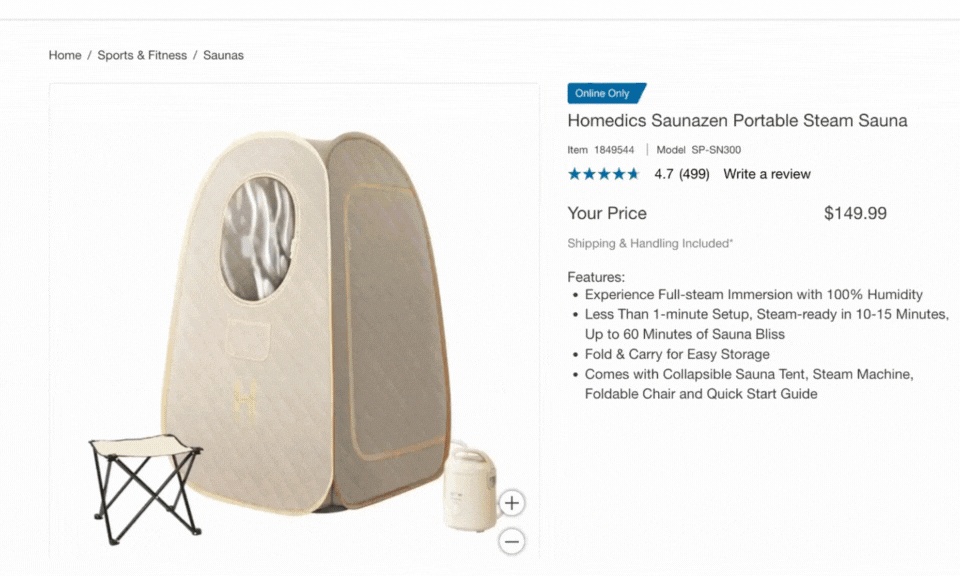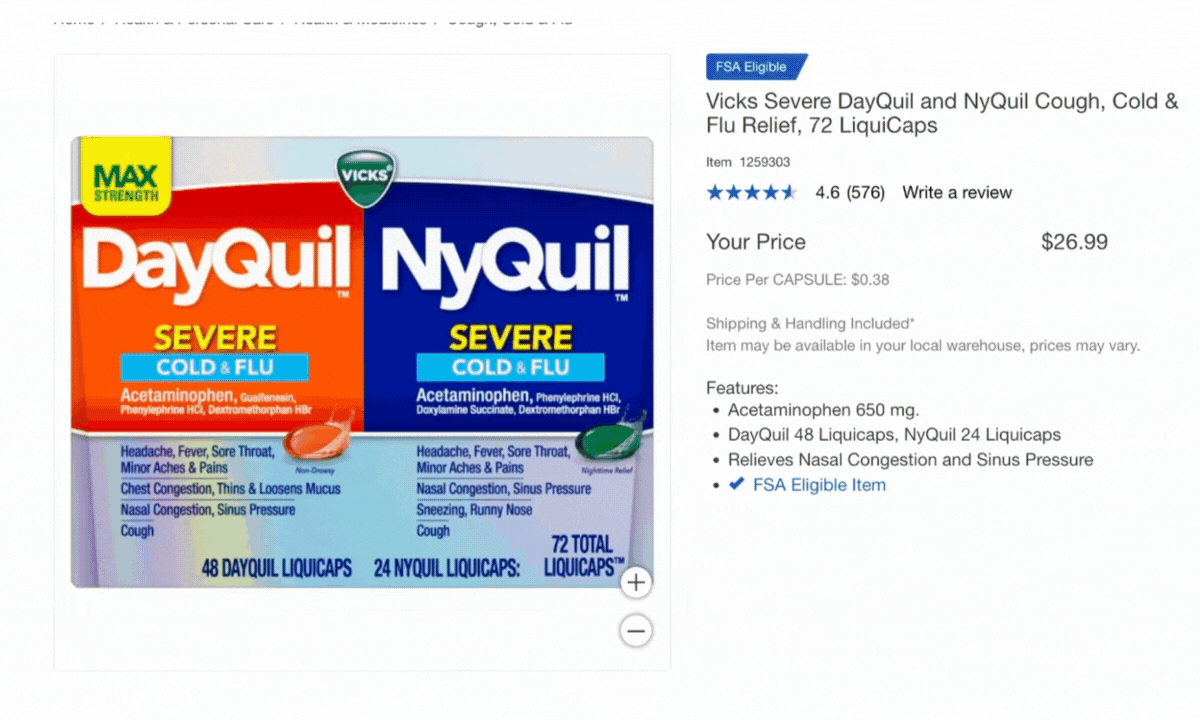Keeping pace with consumer health data privacy presents a significant, ongoing task for retailers, particularly those operating in e-commerce where business naturally crosses state and even global boundaries. Washington state’s new My Health My Data (MHMD) Act serves as a key example of this evolving regulatory environment, introducing new considerations for how companies must handle sensitive information. Importantly, this includes how essential product content on e-commerce product detail pages (PDPs) are displayed.
For brands and retailers, aligning product content and data practices with such distinct, new rules is vital for ensuring uninterrupted sales and maintaining the confidence of their customers.
Fortunately, navigating these obligations and achieving compliance can be approached with clarity and assurance. This article breaks down the product content implications of the My Health My Data Act—examining its core components, identifying who it affects, and outlining how your business can confidently stay compliant.
What is the My Health My Data Act?
The My Health My Data Act is a privacy policy enacted in 2023 in Washington state granting consumers significant control over their personal health data. The act requires companies to obtain explicit consent before collecting, sharing, or selling any information related to a person’s physical or mental health, including data gathered from wearables, non-HIPAA telehealth services, and certain retail purchases.
The MHMD Act gives consumers the right to access, delete, and restrict use of their health data. Although the act is specific to Washington state, it applies to all businesses operating there, including global e-commerce sites that can be viewed within state lines and retailers syndicating or displaying digital health-related content. Any company doing business in Washington or targeting products or services to Washington residents must comply with the MHMD Act.
MHMD Focus on Consumer Health Data
Unlike HIPAA, which primarily covers medical records, the MHMD Act protects a broader range of health data collected by various means. The following health and wellness products and services can be affected by the act:
- Fitness trackers, accessories, and related apps
- Wellness apps
- Medications (including OTC medications)
- First aid supplies and equipment
- Reproductive or sexual health products, including gender affirming products
- Biometric and wearable tech data
- Electronics geared toward or focused on health (e.g., earbuds with mention of a hearing aid apparatus)
- Data related to seeking health care services, including information about individual health conditions, interventions, medications, bodily functions, symptoms, and diagnoses
- GPS equipment providing location data, including data that could reasonably indicate a consumer’s attempt to acquire or receive health services or supplies
- Toiletries with medical claims (e.g., clinical deodorants, medicated mouthwash)
- Diet-related foods (e.g., Keto-compliant food items)
- Creams and lotions for skin conditions (eczema creams are being categorized as health-protected items)
- Other retail purchases that might indicate physical or mental health information
The products and services affected by the act are far-reaching. Because the net is cast so far and wide, retailers must meticulously manage their content and consumer consent to remain compliant.
How MHMD Compliance Requirements May Impact Product Content
The MHMD Act maintains strict consent requirements. Companies must obtain clear, opt-in consent from individuals before collecting or sharing any consumer health data. They must provide accessible privacy policies, so shoppers can know exactly what they agree to when purchasing a product. Sellers must also provide mechanisms for data access and deletion at the consumer’s discretion. Selling consumer health data of any kind is heavily restricted and requires explicit authorization from the individual.
So, how do these data privacy rules specifically impact e-commerce product pages? The connection between these data privacy rules and e-commerce product pages lies in the complex, often behind-the-scenes, technologies that help drive the online shopping experience. While retailers own some of these systems, many PDPs also integrate third-party technologies to function smoothly. If any of these components collect shopper data through cookies or similar means in a manner that violates the MHMD Act—especially concerning health-related information—the retailer can be held accountable.
Such accountability extends beyond direct legal consequences. In addition to legal and financial penalties, ignoring or overlooking the regulations of the MHMD Act can result in the removal of digital content from retailer sites, creating major issues for brands.
Product content is the linchpin of e-commerce and omnichannel sales. 1WorldSync’s 2024 Consumer Product Content Benchmark Report found that 8 in 10 customers choose not to buy products because of poor quality or the lack of availability of product content. When your product content is taken down, consumers grow wary of the quality of your products and the trustworthiness of your brand. Missing content will lead to reputational damage, a disrupted consumer experience, and lost trust and sales that are difficult to overcome in a competitive retail space where every touchpoint brings consumers closer to—or away from––purchase.
Homedics showcases their Saunazen Portable Steam Sauna rich media digital content With 1WorldSync, Homedics can publish to retailers knowing their information is compliant with MHMD.
1WorldSync Rich Content Syndication
Data privacy matters––and not only for the consumer. At 1WorldSync, our Rich Content solution, which is featured on thousands of retailer sites around the globe, operates without cookies. 1WorldSync Rich Content Syndication facilitates compliance with My Health My Data for all healthcare digital content syndicated via our Rich Content solution.
Moreover, our global standards for data privacy and protection are consistent with those of the General Data Protection Regulation (GDPR), the Personal Information Protection and Electronic Documents Act (PIPEDA), and the Personal Health Information Protection Act (PHIPA) for Canada.
We know trust is earned, not at the point of sale, but throughout the buyer’s journey. The same is true of brands and retailers and their content partners. 1WorldSync prioritizes the client experience with full-service content management solutions, including a robust data protection policy that keeps consumer information private.
How 1WorldSync Supports Brands and Retailers in the My Health My Data Act
Compliance with the MHMD Act is essential, which means sellers must partner with a compliant provider. Transitioning to 1WorldSync ensures the uninterrupted display of rich content that engages and converts shoppers. 1WorldSync is trusted by retailers to syndicate fully compliant, rich inline content. In using 1WorldSync, brands are avoiding takedown of digital marketing content on a massive number of health products and verticals on retailers due to noncompliance of other rich online providers.
When you partner with 1WorldSync, you get:
- Assurance of uninterrupted rich content delivery
- Protection of brand integrity and retailer trust
- Peace of mind through proactive, built-in compliance protocols
- End-to-end data governance for health-focused retail ecosystems
Our content management solutions help brands and retailers create and publish accurate and engaging content to increase conversions. Equally important, we ensure your compliance with the MHMD Act so your content is consistent, accurate, and active everywhere you sell, in Washington state and everywhere else you’re reaching consumers.
When seamlessly publishing inline rich media content with 1WorldSync, Vicks stays compliant with MHMD.
Final Takeaways for Brands and Retailers
The MHMD Act has vastly reshaped how retailers selling in Washington––including online retailers––handle customer data. Health product brands and retailers must understand the nuances of this law or face the consequences of fines, penalties, and lost sales.
Compliance isn’t optional; it’s essential. 1WorldSync is the reliable content partner you need to ensure your product content remains visible, accurate, and fully compliant. Reach out today to learn more about how 1WorldSync’s range of tools and solutions can enhance your content strategy starting now. Have any further questions? Learn more at our 1WorldSync Community!
Legal Disclaimer: This blog post provides general information and commentary on the My Health My Data Act and its potential implications for retailers. It is not intended as, and should not be relied upon for, legal advice. Each business’s circumstances are unique, and compliance with data privacy laws requires careful consideration of specific facts. We strongly recommend consulting with your legal team or a privacy attorney to ensure your business’s full compliance with all applicable laws and regulations.



